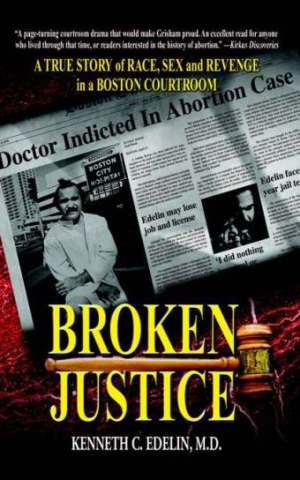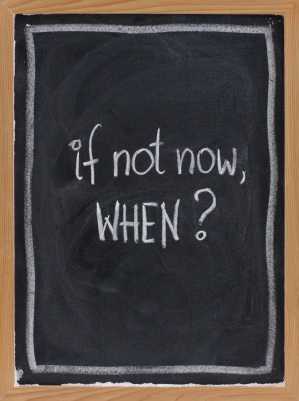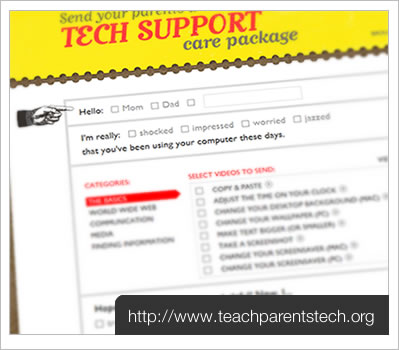Physician Writing: Broken Justice
The Secret to writing: Remove your “stuff” from its boxes and lay it all out.
It took me 30 years to write my book; Broken Justice. A True Story of Race, Sex and Revenge in a Boston Courtroom recounts my criminal trial in Boston on a charge of manslaughter in the death of a fetus during a legal abortion.
I was the chief resident in Obstetrics and Gynecology at Boston City Hospital and in October 1973 I performed an abortion on a 17 year old high school senior, at the request of both the young girl and her mother. The abortion took place nearly 10 months after the Supreme Court, in its decision in Roe v. Wade, struck down all restrictive abortion laws. In spite of this I was indicted by a secret Grand Jury and went to trial for manslaughter. At the end of the six-week trial I was found guilty, but a year and a half later the verdict was overturned by the Supreme Judicial Court of Massachusetts. They entered their own verdict of “not guilty”.
I knew that someday I would write a book about this experience so I collected and saved every document, note, memo, legal brief, letter, news clipping and the entire printed transcript of the six weeks of the trial. I packed all of this “stuff” in boxes and they moved with me every time I moved.
My first attempt to write my book was immediately after the trial with a professional writer – a “ghost” writer – but our styles and personalities didn’t mesh and that relationship ended after several months.
Ten years passed during which time I was appointed Chairman of the Department of Ob/Gyn at BU School of Medicine. I was due a sabbatical and decided I would use it to write my book. At the end of the six month sabbatical I had an outline for my book and a few chapters. With the help of Gloria Steinem I got my proposal in front of an editor at Little Brown. She liked it, but the editorial board turned it down. I was crushed, so I packed-up my “stuff”, and put it back on a shelf in the basement.
In the years that followed I would occasionally write a paragraph, page or chapter. More often than not I would get “stuck”, close the box of “stuff” I had opened, and stopped writing.
Six years ago, I decided I was going to try writing one more time. I was nearing retirement and didn’t want this unfinished project hanging over my head during my retirement years. I was either going to complete my book now or give up the dream forever.
I started out by trying to understand how other writers started and finished their books. I read every book I could find about writing. I subscribed to writers’ magazines. I explored writing web sites. I even attended a writers’ conference for physicians. I learned, not only about the craft of writing, but also about the business of writing and publishing. (I’ll describe this in a later blog).
In a spare bedroom I setup my workspace, opened up my boxes of “stuff”, and laid it all out chronologically on a large table. As I read through it all memories were jogged, details were remembered, emotions were dredged-up and gaps were filled-in. This 30 year old story came alive. I began to write. I wrote about my residency and about the patients I had taken care of – especially that 17 year old girl. I re-read and re-wrote the transcript of the trail and tried to transform it from a dull, bland collection of questions, answers and rulings by the judge, to a living, exciting, dramatic document while being faithful to the meanings of the words.
Simultaneously, I had to explore how I was going to get my book published. I learned that, first, I needed an agent and she or he would find a publisher for my book. I sent more than 50 Query Letters to agents describing my book. I received a rash of rejection letters and a few that wanted more information. In the end I couldn’t find an agent to represent me. I then investigated how to self-publish my book and chose a company to help me do that. (I’ll write about self-publishing in an upcoming post.)
In the summer of 2007 I self-published my book Broken Justice. A True Story of Race, Sex and Revenge in a Boston Courtroom. It was an amazing and satisfying accomplishment. My book received very positive reviews in several major publications and I was invited to speak in bookstores and other venues around the country. The experience has been everything I wanted it to be and more. You can read more about my book and its reviews by going to www.brokenjustice.com
About: Kenneth C. Edelin, M.D. is Emeritus Professor of Obstetrics and Gynecology at Boston University where he was Chairman of the Department for eleven years.
 Email This Article tagged:
Email This Article tagged:  Boston City Hospital,
Boston City Hospital,  Dr. Kenneth C. Edelin,
Dr. Kenneth C. Edelin,  Roe v. Wade |
Roe v. Wade |  Jan 3, 1:00 PM
Jan 3, 1:00 PM 










